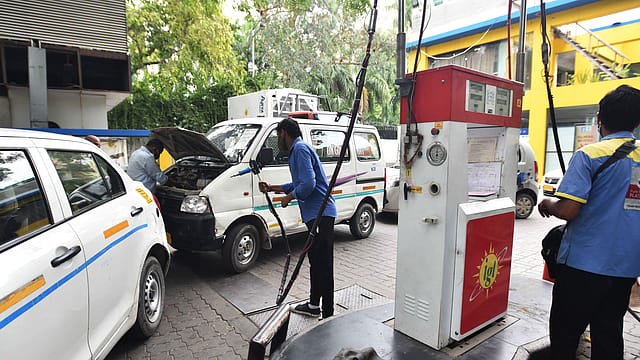Govt announces mandatory blending of compressed bio-gas in CNG, PNG
ADVERTISEMENT

The National Biofuels Coordination Committee has announced phase-wise mandatory blending of Compressed Bio-Gas (CBG) in CNG for transport and PNG (domestic gas) segments for the city gas distribution sector.
CBG Blending Obligation (CBO) will promote the production and consumption of compressed bio-gas in the country, says Hardeep Singh Puri, Minister of Petroleum & Natural Gas and Housing & Urban Affairs. The government aims to enhance the use and adoption of CBG.
The key objectives of the CBO are to stimulate demand for CBG in the CGD sector, import substitution for Liquefied Natural Gas (LNG), savings in forex, promoting circular economy and to assist in achieving the target of net zero emission, the petroleum ministry says.
This, according to Puri, will encourage investment of around ₹37,500 crore and facilitate the establishment of 750 CBG projects by 2028-29.
CBO will be voluntary till 2024-2025 and mandatory blending obligation will start from FY26, the ministry says. CBO will be kept as 1%, 3% and 4% of total CNG/PNG consumption for FY26, FY27 and FY28 respectively. From 2028-29 onwards CBO will be 5%.
A Central Repository Body (CRB) shall monitor and implement the blending mandate based on the operational guidelines approved by the minister, PNG, the ministry says.
Discussions also took place for promoting production of ethanol from maize with all stakeholders especially with the Department of Agriculture and Department Food and Public distribution (DFPD) to make it a prominent feedstock in coming years, says the ministry.
The government has advanced its 20% ethanol blending in petrol target to 2025 from 2030. The Centre has also diversified the feed from where it comes to sugar, maize, food waste, broken food grains, and bamboo. The Centre achieved 10% ethanol blending five months before its November 2022 target. Ethanol blending in India has increased by over 8 times. It has increased from 1.53 % in 2014 to around 11.5 % (March 2023) leading to savings in the import bills and also lowering carbon emissions.
“It was discussed that the last few years there is increase in Maize cultivation area, yield per hectare and production. Work has been initiated by this ministry in consultation with Department of Agriculture and DFPD to further develop high starch yielding varieties, improve quality of maize DDGS (Dried Distillers Grain Solids) by removing aflatoxins, faster registration of new seed varieties with high starch. To further promote maize training program for distillers with seed companies has also been initiated,” the ministry says.
Another important announcement was made for promoting biofuels in the country. Sustainable Aviation Fuel (SAF/Bio-ATF) initial indicative blending percentage targets were set by the committee. Based on the comments received from the stakeholders, like MoCA, Niti Aayog, OMCs, etc., the capacities of Sustainable Aviation Fuel plants coming up in the country and projected ATF sales, the government approved 1% SAF indicative blending target in ATF by 2027 for international flights and 2% SAF blending target in 2028 for international flights.